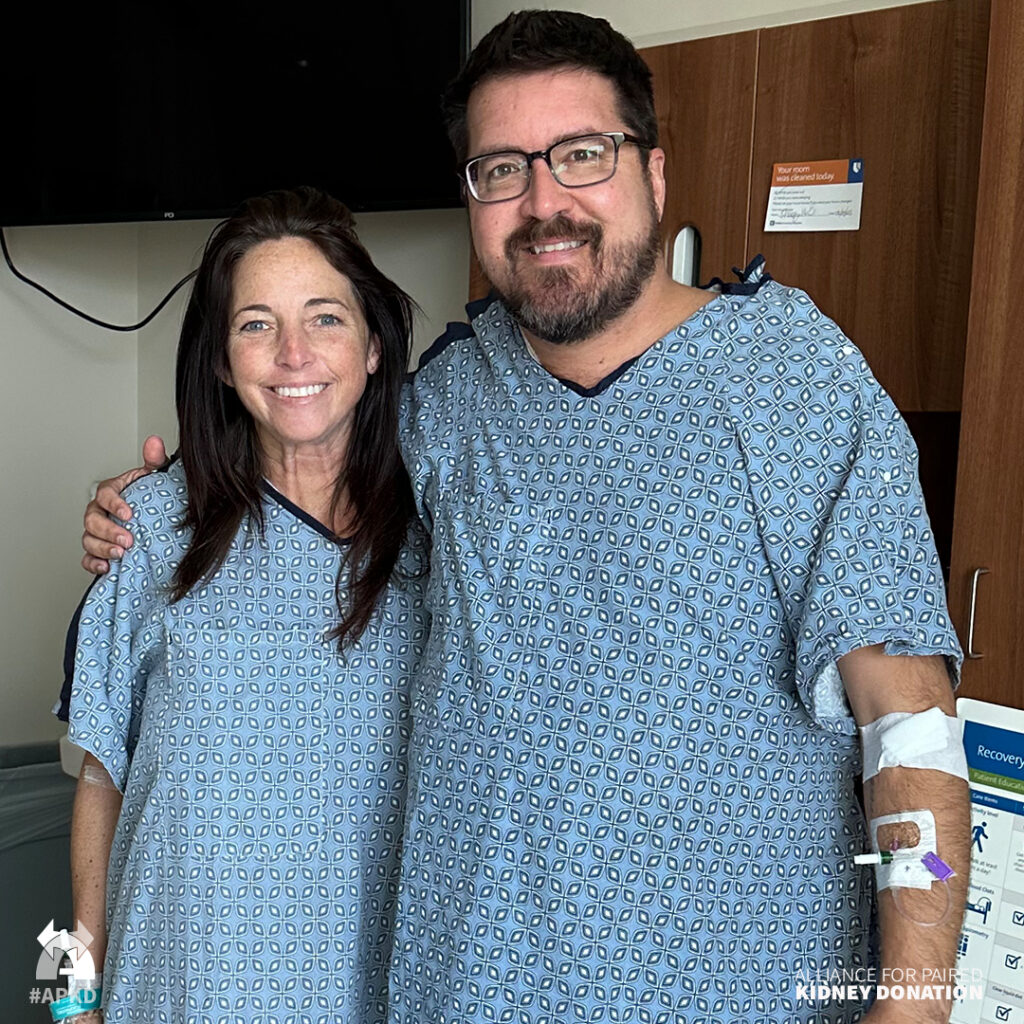Earlier this year, APKD was honored to facilitate a 3-way kidney transplant chain and help save the lives of three patients.
A few months after the surgeries, the donors and recipients are doing well and had the chance to talk to each other in a virtual meeting. Read more below from CBS 17’s Maggie Newland, whose original article can be found here.
RALEIGH, N.C. (WNCN) — When a Raleigh musician needed a kidney, a friend of a friend offered to donate hers. The offer led to a kidney transplant chain stretching from the Triangle all the way to Denmark.
When Jason Adamo sings, you can hear his passion for his music; pictures show his love for his family, but for the past couple of years, polycistic kidney disease left Jason weak and exhausted.
“I could barely get off the couch,” he said
He needed a transplant and knew his best bet was finding a living donor. At the time he didn’t know Jenna Kovacic, or that she was already going through the process to become a kidney donor at Duke — the same health system treating him.
A mutual friend connected them and Kovacic offered to donate her kidney to Adamo.
“It felt right right from the get-go,” said Adamo. “Like a fairytale,” added Kovacic.
Then, just days before the surgery, they learned the kidney wasn’t a perfect match. “It was devastating at first,” Kovacic recalled.
Meanwhile, across the ocean, in Denmark, friends Peter Wichmann and Morton Berktoft were dealing with a similar issue. Wichmann wanted to donate his kidney to Berktoft, but they didn’t match either.
Then something called a paired kidney exchange ended up helping all of them.
When someone wants to donate to a specific person, but isn’t a match, they can donate to someone else, whose intended donor isn’t a match for them. The Alliance For Paired Kidney Donation, or AKPD, uses an algorithm to create transplant chains, which may require several patients and donors to find compatible matches, and make sure the original intended recipient receives a kidney.
“It’s actually a Nobel prize-winning algorithm,” explained Krista Sweeney with AKPD. “They put these pairs into our system… We’re able to identify the best matches for each pair.”
In this case, Kovacic donated her kidney to someone in Colorado. Their loved one donated a kidney to Berktoft, who flew to the U.S. for the surgery along with Wichmann, who donated a kidney to Adamo.
“It was already mind-blowing, but to hear that my kidney was coming from Denmark it was just amazing,” Adamo said.
Three months after the surgeries the donors and recipients are all doing well and got a chance to talk to each other in a virtual meeting.
Not only are they healthy, but they’ve formed friendships they’d never imagined. Adamo, as a musician, finds it remarkable that his donor, Wichmann, is an artist. Now the two send each other photos and albums of their work.
Adamo and Kovacic have become close friends and their families enjoy spending time together.
They both find it fascinating to be connected with Berktoft, who serves as a police officer in Denmark and works as a body guard for the Prime Minister, Crown Prince, and Queen of Denmark.
“Even though the paired exchange wasn’t our initial plan it worked out so great for six people,” said Kovacic. “And three people’s lives to be saved.”

